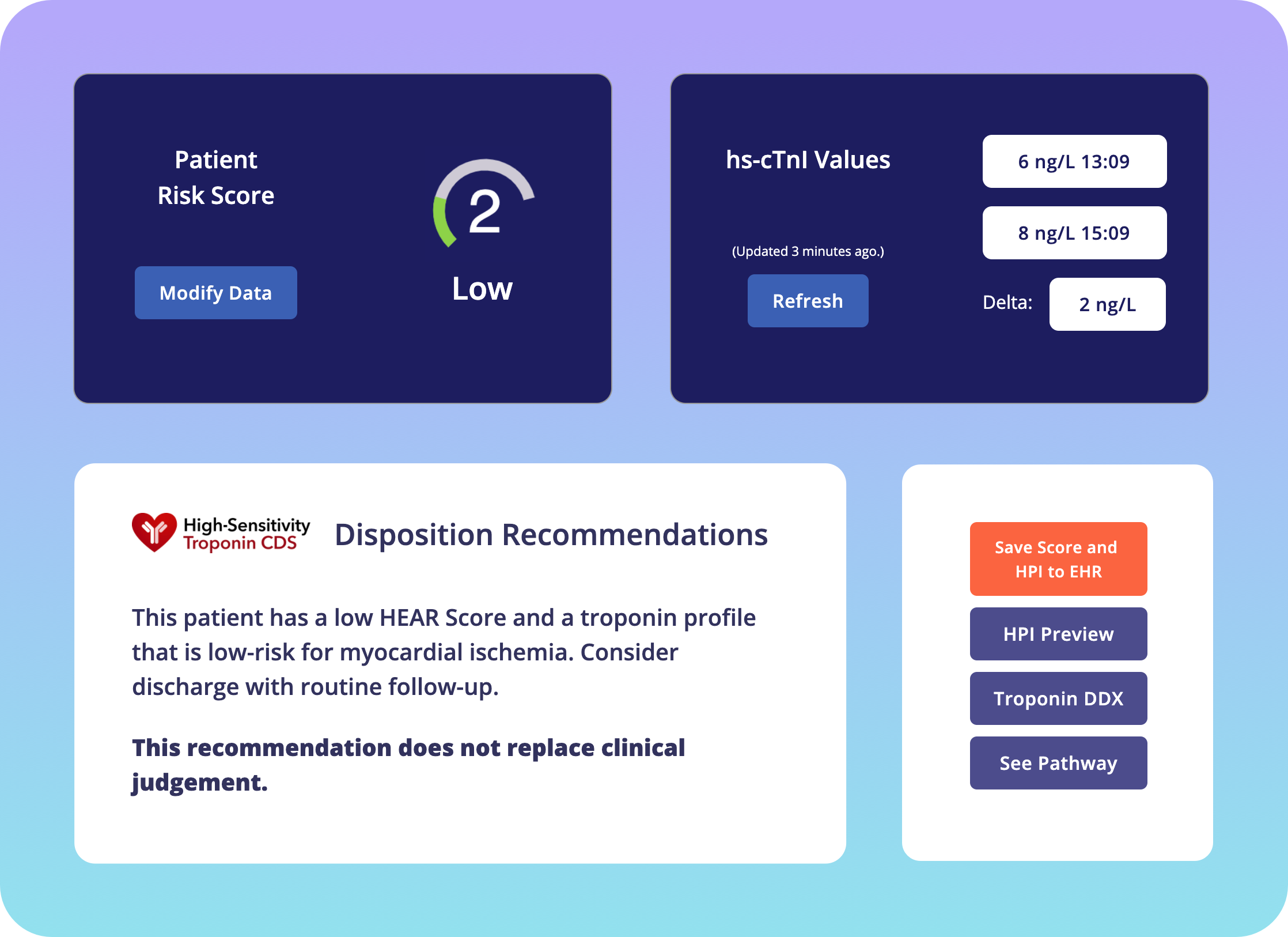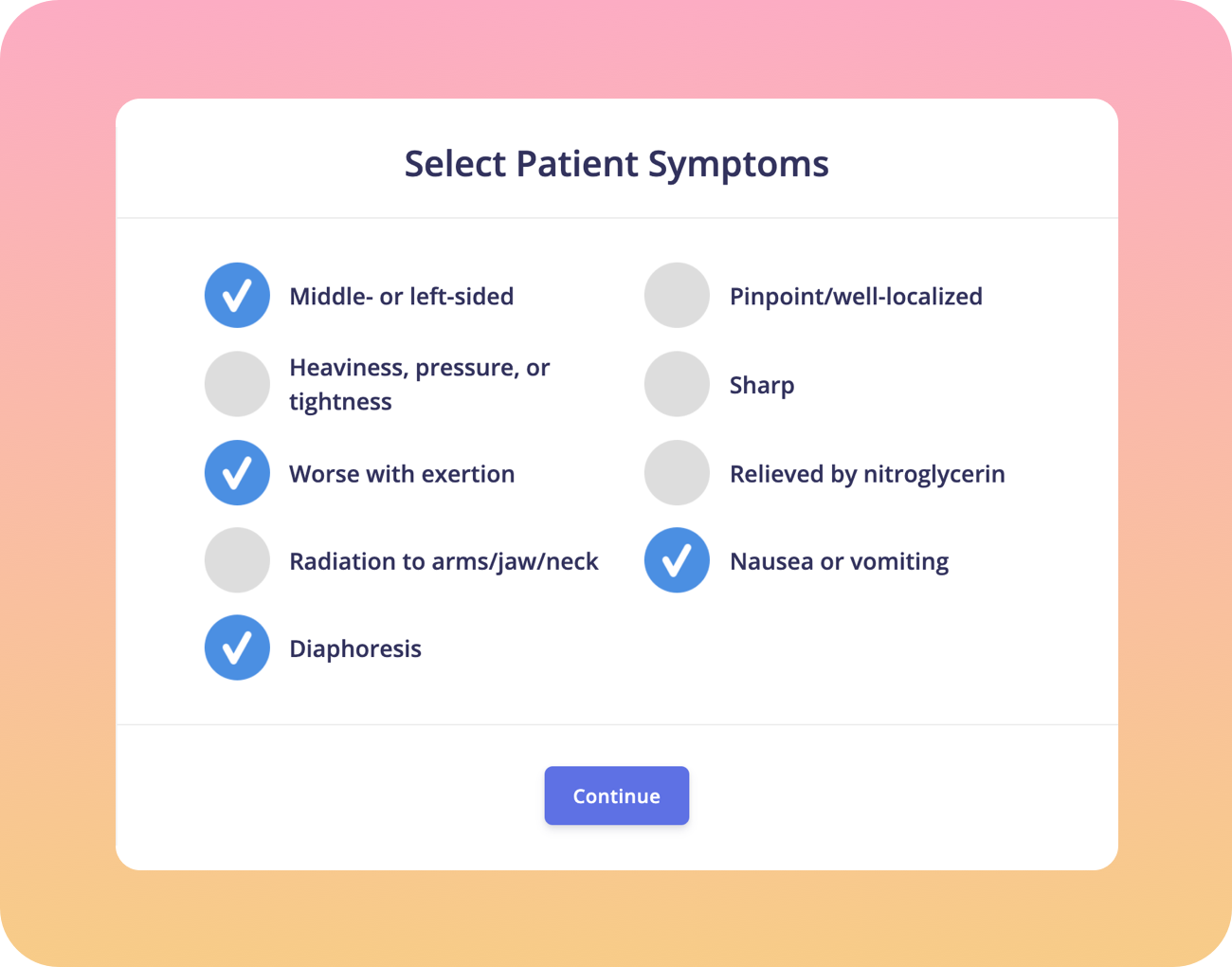


Implement an institutional pathway that allows all your providers to use the same logic when analyzing high-sensitivity troponin results.
Avoid the cost and risks associated with uneeded observation admissions due to false-positive troponin values.
Satisifies requirements for documentation of risk-stratification, which is required for chest pain center accreditation.
With IQ Engine™, population data are aggregated in real-time, with 18+ metrics that track the performance 24 hours a day, 7 days a week.
Medical science is constantly changing. Our platform enables rapid adaptation to the best validated evidence.
Like a smartphone app, our plug-in offers guaranteed compatibility and a shockingly simple implementation on Epic and Cerner EHRs.
High-sensitivity troponin assays are now available in the US, but with high-senstivity comes low-specificity. Without appropriate clinical decision support, health systems can't benefit from the full power of high-sensitivity troponin, and they also risk admitting thousands of patients unnecessarily.
Impathiq™ offers a complete, end-to-end CDS solution that enhances provders' ability to distinguish low and high risk patients with evidence-based risk stratification technology proven to reduce miss-rates while reducing overall healthcare costs.


Chest pain is a top cause of US ED visits. Eight to ten million patients with chest pain present to an ED annually in the United States. Emergency providers care for patients with chest pain on virtually every shift. More than half of Emergency Department patients with chest pain receive lengthy cardiac evaluations in a chest pain unit or inpatient ward, with an annual cost $10-13 billion.
Less than ten percent of patients have an acute coronary syndrome (ACS). Two to five percent of patients with myocardial infarctions are inappropriately discharged from the ED every year. Missed ACS is a top cause of malpractice claims.
Impathiq™ High-Sensitivity Troponin CDS is powered by the HEART Pathway®, a revolutionary clinical algorithm that uses objective clinical data to risk stratify patients with chest pain. The HEART Pathway® identifies patients who are unlikely to benefit from advanced cardiac diagnostic testing and who can be safely discharged home.
By using a statistical model based on the latest clinical validation studies, the HEART Pathway® puts unparalleled accuracy and precision in the hands of clinicians.

Robust support for administrative insights through our proprietary backend.
Emergency medicine, internal medicine, and cardiology benefit from our consistent scoring method.
Documented use of risk stratification supports chest pain center accreditation.
Our high-sensitivity troponin interpretation technology is powered by the HEART Pathway® a clinically-validated algorithm designed for more accurate risk stratification. The HEART Pathway® can identify patients unlikely to benefit from hospitalization or advanced cardiac diagnostic testing who can safely be discharged home from the ED. This allows hospitals to focus resources on the patients most likely to benefit. Studies have demonstrated the benefits of the HEART Pathway® compared to usual care in a randomized control trial (Mahler et al, Circ CVQO J, 2015.)
The HEART Pathway® assists with answering two important questions: "What is the likelihood that my patient’s presenting symptoms represent ACS?" and "what is the likelihood that my patient will have an major adverse cardiac event (MI, revascularization, or death) within 30 days?"
